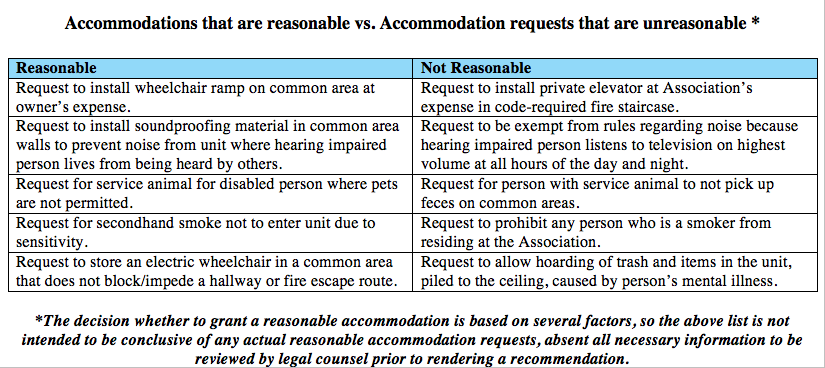Warehousing: How to Handle Elderly & Disabled Residents Who Are Unable to Care for Themselves
The phenomenon of “Warehousing” is very unfortunate for individual owners who genuinely need the type of help that an Association is unable to provide; and also unfortunate for the Association in dealing with such a delicate situation, especially when resources for assistance are not readily available. Warehousing is when a family member or friend of the occupant sends or allows the occupant to live in the Association rather than the proper assisted living facility or a nursing home. While the occupant may need special care, it will often be more cost effective for the occupant to live in their unit, especially if they already own it at the time their health began to deteriorate. Moreover, most people prefer to age in their own residences rather than some type of specialized housing for the elderly.
Some of these occupants have physical limitations that render them unable to move about the residence freely and safely, which may be a hazard to them. Other occupants may have Dementia, Alzheimer’s, and other ailments, which may be a danger not only to occupants, but also to other unit owners.
How does a Board handle the situation where the Board is either unable or ill equipped to assist a person who has a disability, and should have the assistance of a medical professional?
Typically, as long as the Board is handling a situation in a non-discriminatory manner, in accordance with the Americans with Disabilities Act (ADA), the Fair Housing Act (FHA), and any other applicable laws, the Board’s actions are protected by the business judgment rule. The business judgment rule pertains to Board actions - as long as the Board reasonably investigates a matter, acts in good faith, and in a manner that the Board believes to be in the best interests of the Association, as a whole, and its members, then, usually, its decisions will be upheld by the Court.
Does the ADA apply to your Association? It depends. If the Association is entirely private, then the Association is usually not subject to the ADA. However, if, for example, you open up your pool for swimming tournaments, or rent your clubhouse to persons outside of your neighborhood, the public nature of the Association will usually render the Association subject to the ADA.
Does the FHA apply to your Association? Yes, it applies to all condominiums and homeowners associations. It requires that the Association not discriminate on the basis of race, color, religion, sex, familial status, disability or national origin. Also, the Association may not refuse to grant reasonable accommodations for a dwelling or refuse to make reasonable accommodations in rules and policies.
It is important for the Board to remember that just because a person is disabled or elderly, they are not exempt from the Association’s governing documents and rules and regulations. The Board has a duty to enforce, regardless of the disability status or age of a resident. The Association’s governing documents provide much of the Board’s power to enforce common issues with these residents who are warehoused. Those include a nuisance provision, which prohibits noxious or offensive activity (such as hoarding), a right of entry to inspect the units on a regular basis to ensure compliance with governing documents, a right to evict tenants who are violating governing documents, and for condominiums, a right to dispossess a person of their unit for egregious violations of the governing documents.
Also, keep in mind that there are several county agencies that may be willing to assist once a resident reaches a certain age. Where enforcement proceedings may not seem like the right route to follow, the Association can usually make an anonymous referral to social services if it has observed extreme behavior that may endanger the occupant and/or other residents.
In short, if there are enforcement issues involving a disabled or elderly resident, ensure that you are still holding them to the same standards and rules as other residents. Where a policy may be unreasonable for a person who falls into this category and an accommodation is requested, the Association should grant an accommodation. Otherwise, ensure that if there are complaints from other residents regarding a behavior or state of the premises that is in violation of the governing documents, that the complaints are put in writing, and signed and dated by the complainant. If the matter escalates to litigation, we need a paper trail of complaints.

